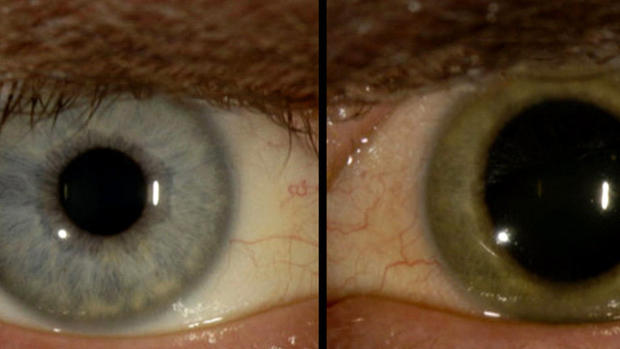Ebola virus found lurking in doctor's eye
For the first time, Ebola has been discovered inside the eyes of a patient months after the virus was gone from his blood.
Ebola has infected more than 26,000 people since December 2013 in West Africa. Some survivors have reported eye problems but how often they occur isn't known. The virus also is thought to be able to persist in semen for several months.
The new report concerns Dr. Ian Crozier, a 43-year-old American physician diagnosed with Ebola in September while working with the World Health Organization in Sierra Leone.
He was treated at Emory University Hospital's special Ebola unitin Atlanta. A report on his case, published online in the New England Journal of Medicine, gives a detailed account of his near-fatal ordeal. Crozier suffered "multiorgan system failure" and spent 12 days on a ventilator.
After improving enough to get off the ventilator, doctors reported "the patient had altered mental status, difficulty walking...and extreme fatigue." With the help of an experimental antiviral drug, plasma infusions and intensive supportive care, he made it through the worst of the illness, regained much of his strength and mental functioning, and was released from the hospital in October when Ebola was no longer detected in his blood.
Two months later, however, he developed an inflammation and very high blood pressure in one eye, which causes swelling and potentially serious vision problems.
Not only that, Crozier told The New York Times his infected eye turned from its normal bright blue to green, which can be a rare consequence of severe viral infections.
Crozier returned to Emory, where ophthalmologist Dr. Steven Yeh drained some of the fluid and had it tested for Ebola. The fluid contained the virus, although Crozier's tears and tissue around the outside of his eye did not.
That suggests that casual contact with an Ebola survivor poses no public health risk, but shows that survivors need to be monitored for the eye problem, Yeh said.
Crozier has not fully recovered his vision but continues to improve, Yeh said.
Dr. Jay Varkey, an Emory infectious disease specialist, said those involved in Crozier's care wore recommended protective gear and monitored themselves for Ebola symptoms for several weeks afterward as a precaution.
Doctors discussed the case at an Association for Research in Vision and Ophthalmology conference in Denver on Thursday, and the New England Journal of Medicine published their account online.
